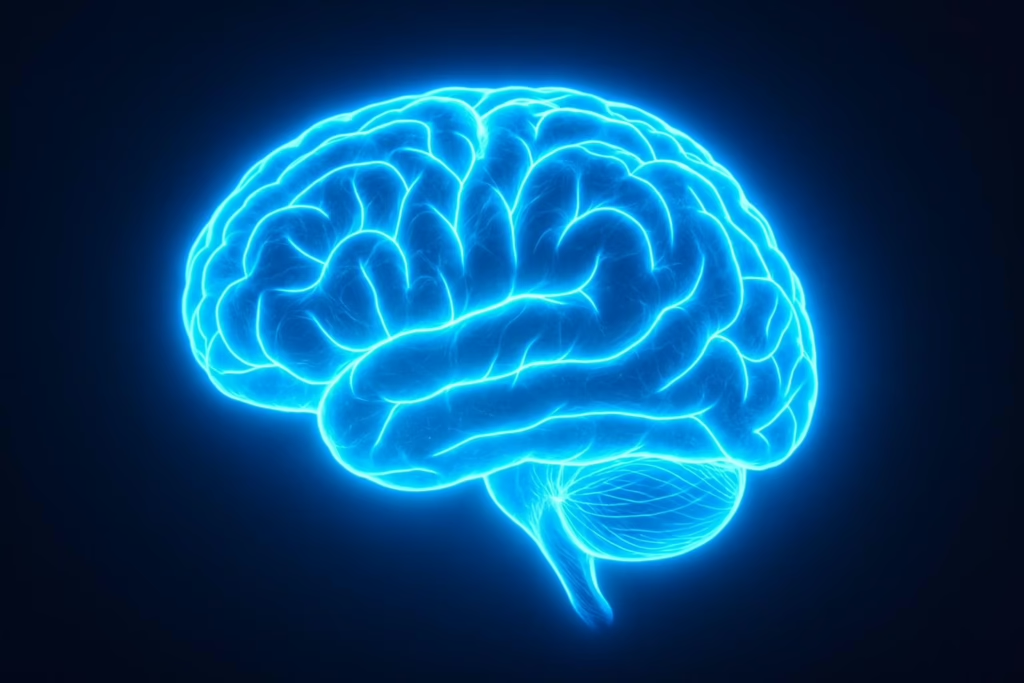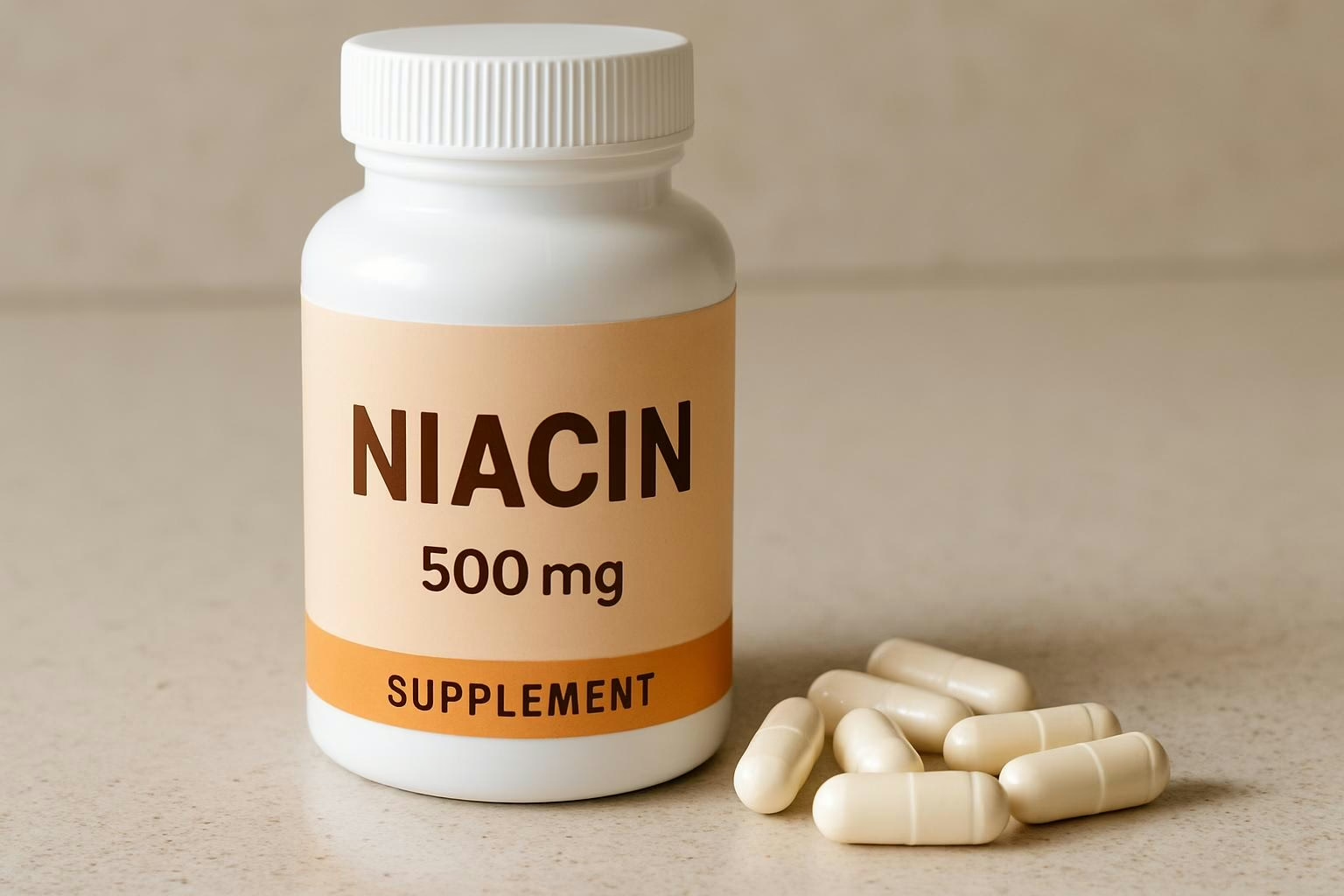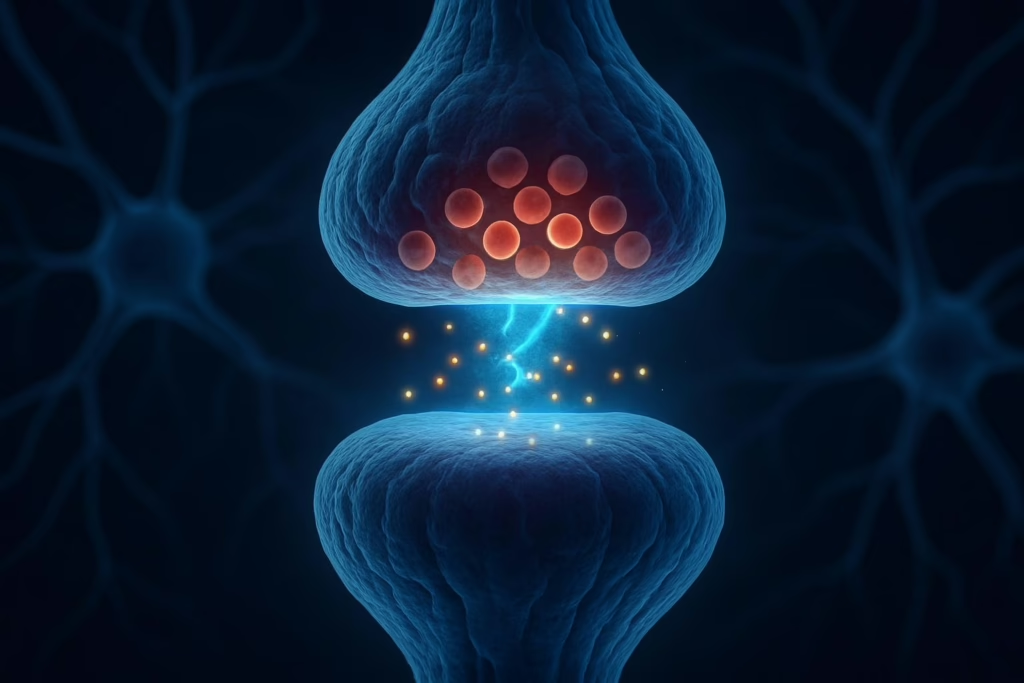
How Vitamin B3 May Encourage Optimal Brain Health
Vitamin B3 or Niacin is important in sustaining the optimal health of our bodies and specifically the brain too. Niacin or vitamin B3 is a B vitamin which means this vitamin is vital in supporting energy production within the body.
Our brains use a lot of the energy made by our bodies so a regular intake of this vitamin is very important in ensuring our brains have sufficient energy. Vitamin B3 also selectively enters the brain once absorbed through the protective blood brain barrier. This makes supporting niacin easier. Deficiencies in vitamin B3 could lead to a decline in energy production and feelings of fatigue.
According to the FDA the average person above 4 years requires around 16mg of niacin in total every day. If you are vegan or vegetarian you may find that you could do with some more niacin. Some foods rich niacin include beef and tuna. Initial studies show that vitamin B3 could support brain related aspects of our health including sleep pattern and also may be preventative of nerve cell degeneration.
The various ways in which vitamin B3 may support the optimal health of our brain will be considered here to show why you could possibly benefit from more vitamin B3 if looking to support cognitive health.

Niacin Or Vitamin B3
Niacin or vitamin B3 is also known as nicotinic acid and nicotinamide. These are different versions of vitamin B3. As this is a water soluble vitamin we need a regular intake of vitamin B3 every day. Some rich food sources of niacin include tuna and roast beef.
Niacin is required to support the production of energy as ATP within our energy producing mitochondria. This happens through the metabolism of carbohydrates and fats. This energy produced then supports all the processes within our bodies and includes brain or cognitive functioning too. Niacin is used to make NAD and NADP which may be familiar to you. These are key molecules in the energy production cycle which provide us with energy. Niacin is considered to be very important in supporting the optimal functioning of our nervous system.
Deficiencies in vitamin B3 could result in pellagra. This is characterised by symptoms of irritability and generalized weakness. Loss of appetite over lengthy periods may also occur alongside pigmented lesions and also a decreased memory. Disorientation is also a symptom of vitamin B3 deficiency. These symptoms of deficiency include adverse effects on cognition which suggests that supporting vitamin B3 levels is important in maintaining optimal brain health.
Does Vitamin B3 Support Brain Health
Our brain uses an incredible amount of energy every day. The brain is the most metabolically active organ in our body and uses 20% of the energy we make every day. Our brain also makes only 2% of our total body weight.
Considering how important niacin is in maintaining optimal energy production and the symptoms of a niacin deficiency this vitamin could possibly support optimal brain health. Studies have indicated that deficiencies in B vitamins such as vitamin B3 are very strongly linked to issues with mental wellbeing and may support sufferers.
Some studies show that a lack of B vitamins is linked to depression symptoms through systemic inflammation. This could include niacin although this would need further clinical support. Inflammatory build ups which influence depression may be caused by inflammatory cytokines that effect our brain. Vitamin B3 supplementation may possibly support those with depression.
Vitamin B3 is known to be selectively transported through the blood brain barrier which means supporting our vitamin B3 levels is easy in comparison to some other nutrients. Their levels within the brain are also very tightly regulated by our bodies.

Niacin And Sleep
One study showed that 250mg of niacin may reduce sleep disturbances in individuals with Parkinson’s disease. Niacin supplements may be best consumed during the day. This is because of their possible powerful influence on energy production especially within the brain.
Other clinical studies have also revealed similar and show that niacin supplements could support our sleep wake patterns. Niacin supplementation supported improvements in deep sleep and also sleep efficiency in sufferers of insomnia. Sleep is important in preserving brain health. This could then be an important means as to how vitamin B3 encourages brain health.
Vitamin B3 And Nerve Signalling
Another research study showed that vitamin B3 may promote the remyelination of axons. The myelination of nerve cells is crucial in ensuring optimal nerve signalling within the brain. Healthy levels of myelination may encourage more optimal cognition and is supportive of higher order cognitive functions.
A lack of myelination could cause nerves to tangle and is characteristic of Alzheimer’s disease where cognition is severely reduced. Considering how important myelin is in supporting healthy cognition this may be a very crucial means as to how vitamin B3 could contribute to maintaining the health of our brain.
Other studies show that vitamin B3 supplementation could protect nerve cells from excitotoxicity too. This would support healthy nerve signalling and structure which may promote optimal brain functioning.
Vitamin B3 As A Neuroprotective Vitamin
Supplementing with vitamin B3 has also been shown to possibly be able to protect nerve cells from damage in preclinical studies. However this needs to be looked at in more detail in the future.
Initial reports suggest that vitamin B3 could stabilise the amount of oxidative stress within areas where this nutrient becomes localised. This would then reduce the risks of permanent mitochondrial damage and also neuroinflammatory damage. The study in question found that niacin supported healthy visual signalling and possibly encouraged improved vision. This is not the only study which has presented vitamin B3 as being able to protect our eyesight.

Niacin And Oxidative Damage
One study in particular has outlined that vitamin B3 could significantly protect our mitochondria from oxidative damage. Oxidative damage and mitochondrial abnormalities are leading causes of nerve degeneration.
Other studies have also discovered that niacin or vitamin B3 may provide protection against neurodegeneration through supporting DNA repair responses. Preclinical evidence suggests again that this may be due to reductions in oxidative DNA damage. High amounts of localised oxidative stress cause DNA damage which then could lead to nerve cell death. This could be a very important means as to how vitamin B3 could ultimately support the overall health of our brains.
A preclinical study also showed that a course of vitamin B3 supplements could support the brain to recover during injury. They suggested that niacin could be neuroprotective and may also improve sensory outcome after brain injury. This again needs to be looked at in a clinical setting but shows how vitamin B3 could possibly support brain health and optimal brain functioning.
Overall there is a lot of emerging evidence that supports the possibility that niacin supplementation could encourage more optimal brain health in various scenarios through improving the amount of vitamin B3 circulating in our bodies.

Summary
Vitamin B3 is used within the body to support healthy energy production. Because our brains use a lot of energy a regular intake of this vitamin is needed to ensure our brains have the energy required to function. Our brain uses about 20% of the energy we make every day.
The FDA suggests that the average person above 4 years requires 16mg of niacin a day with foods such as tuna and beef providing rich sources of this vitamin. Other names of vitamin B3 include niacin or nicotinamide. These are just different versions of this vitamin.
Niacin supports our brain through ensuring healthy amounts of energy production with diagnosed deficiencies being linked with decreased memory and disorientation. Some studies show that vitamin B3 could support sufferers of depression through mitigating inflammation. Clinical studies support the use of niacin to encourage healthy sleep patterns and promote deeper sleep too.
Vitamin B3 dietary support could also encourage nerve cell myelination. This is linked to higher cognitive functioning and may encourage more optimal cognition. A lack of myelination does cause nerve tangles and this is seen in Alzheimer’s sufferers where cognition is severely reduced. There is also an accumulation of studies showing that vitamin B3 could also protect nerve cells from excess damage or degeneration due to oxidative stress. Some studies have found that niacin could promote healthy eyesight through protecting nerves from degeneration.
Overall there is a lot of emerging evidence in support of the possibility that niacin supplementation could encourage more optimal brain health. Research has shown this in various scenarios.
You can read more interesting articles below.





